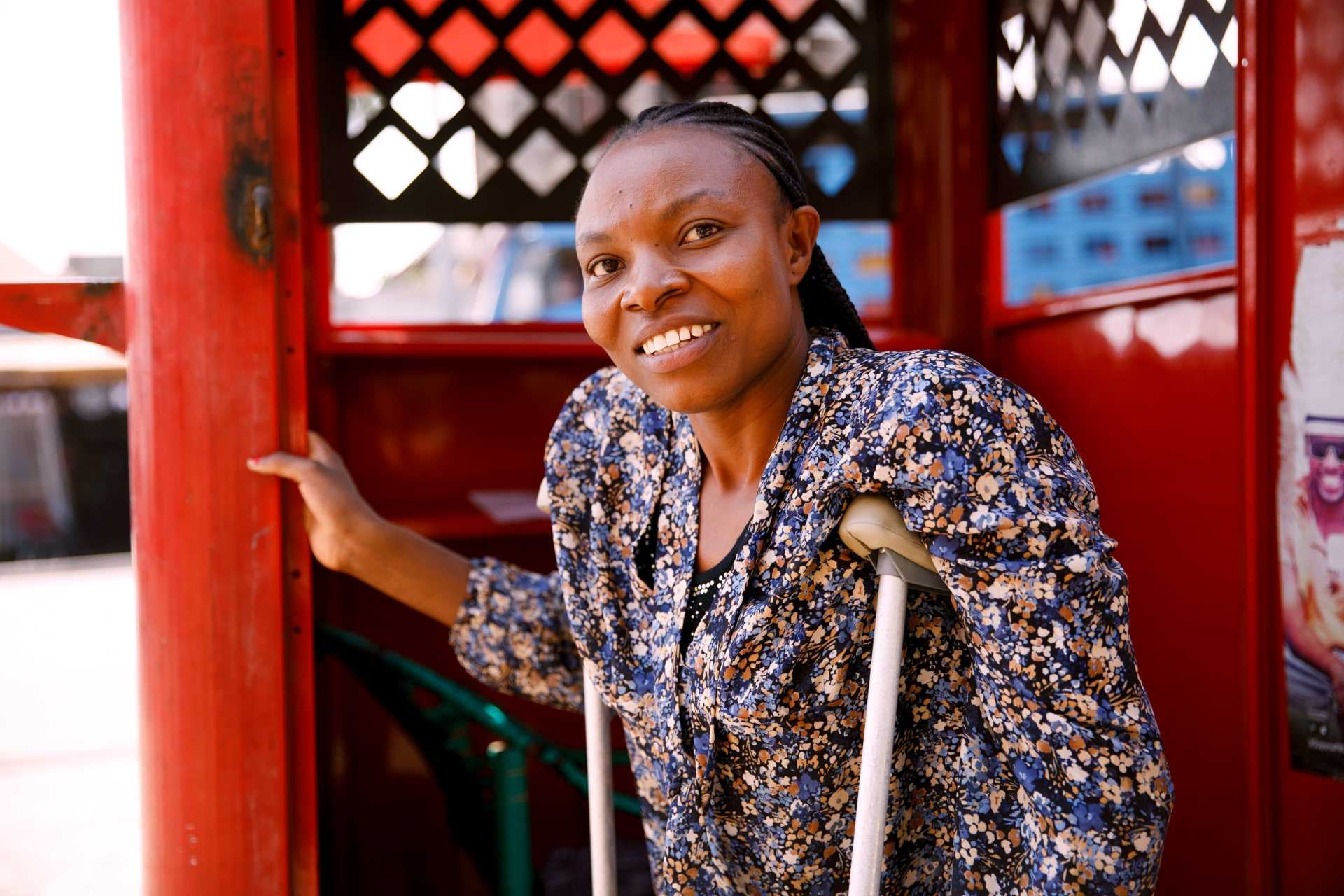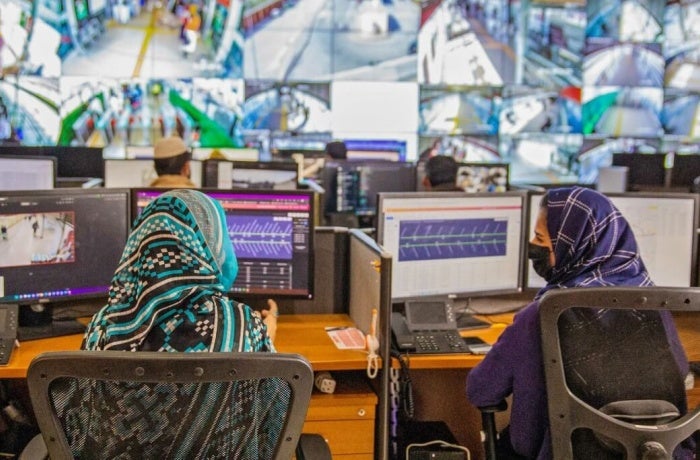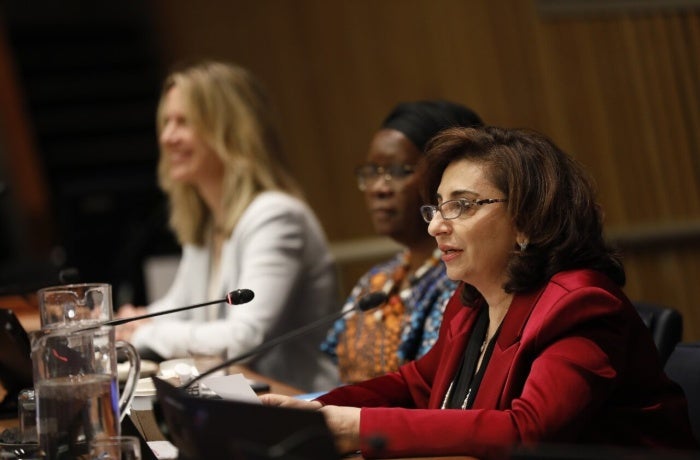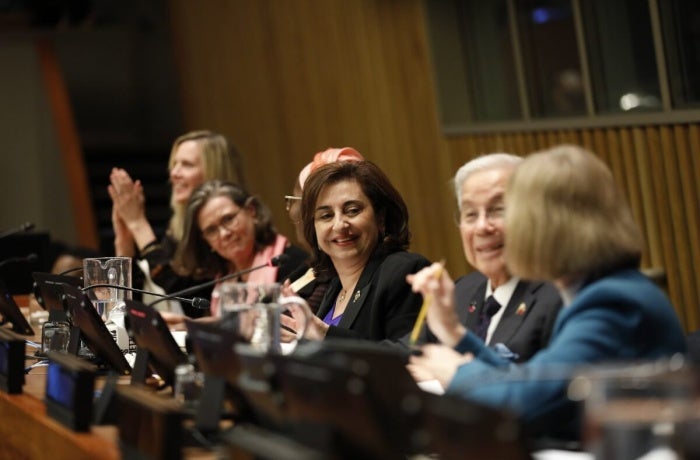How can gender equality reduce poverty?
More women than men are living in poverty overall. Currently, more than 10 per cent of women globally are trapped in a cycle of extreme poverty, living on less than USD 2.15 a day. At the current rate of progress, as many as 342 million women (8 per cent) will still be living in extreme poverty by 2030.
Women’s poverty is fuelled by discrimination in the world of work, limited access to resources and financial assets, and deep-rooted stereotypes that limit women’s participation in education, decent employment, and decision-making, while burdening them with a larger share of unpaid care and domestic work.
Gender equality is a powerful catalyst for reducing poverty and driving sustainable development. By ensuring equal access to opportunities and decision-making for all, societies can create healthier and just economies.

How UN Women addresses the gender poverty gap
Below are some examples of how the Generation Equality Action Coalition on Economic Justice and Rights has changed women’s lives through global initiatives and programmes.
In 2022, Generation Equality mobilized USD 32 billion for economic justice and rights initiatives.
Generation Equality has supported more than 440 programmes working to address economic injustice.
At least 91 per cent of these commitments support marginalized communities, 75 per cent address power dynamics, and 52 per cent aim to enhance feminist leadership.
Boosting productivity through access to quality jobs for women
Higher female labour force participation rates can turbocharge economic growth; however, research shows that simply guaranteeing work for women is not enough. Women’s economic inclusion must also ensure access to decent work, equal pay for work of equal value and robust social protection.
Only 61 per cent of prime working-age women are in the labour force, compared to 90.6 per cent of men. Furthermore, nearly 60 per cent of women worldwide are in the informal economy, a figure that skyrockets to more than 90 per cent in low-income countries. A vast proportion of them hold unstable, low-paid, and unskilled jobs that lack social security nets as domestic workers, construction workers, or seasonal agricultural labourers. Investing in skilled, decent jobs for women has a ripple effect with broader benefits to society that not only promote gender equality but also drive sustainable economic development for all.
The Skill Impact Bond is a pioneering USD 14.4 million project in India designed to boost women’s access to decent work. Around 50,000 people (at least 60 per cent of whom are women) will be equipped with employability skills, including digital and financial literacy, language training, and industry-specific courses.
Those who have certified—almost 10,000 people, of which over 70 per cent are women—have reported a 56 per cent job placement rate and 42 per cent retention rate over just three months, outperforming many other national initiatives.
Inclusive social and legal protection key to global growth
With only 26 per cent of women covered by full social security systems globally, the lack of support is stark. Discrimination in the world of work traps many women in underpaid and informal jobs, perpetuating poverty. According to the International Labour Organization, women are the most discriminated group in the workforce, also facing higher rates of sexual violence and harassment.
Expanding women's access to formal, decent jobs and to social welfare programmes—such as healthcare, pensions systems that recognize unpaid care work, and full maternity protection—lays the foundation for economic empowerment. It addresses the root causes of inequality while also shielding women from bias, gender-based discrimination, and violence in the workplace.
In Germany, the Initiative for Global Solidarity has helped 300,000 workers (60 per cent women) to access improved complaint and remedy processes when they experience discrimination and violence in the workplace. More than 1,500 workers have received training to support these efforts and some 200,000 women from the textile, garment, and electronics sectors, can now address workplace harassment and gender discrimination issues.
Creating a care society rooted in gender equality
Women bear the brunt of most unpaid care and domestic work, spending 2.8 more hours than men on unpaid care. As a result, women and girls have less time and opportunities to access education and paid work, or to participate in social and political life. This in turn keeps them poorer than men. Investing in care services, such as provision of daycare and elderly care, could create almost 300 million jobs.
In 2023, Kazakhstan extended childcare payments for both working and non-working mothers from 1 to 1.5 years and increased social benefits for people with disabilities by 14.5 per cent. This improved support system helped nearly 700,000 parents over the year.
Shifting to sustainable economies that include women
As the world pivots towards renewable energy solutions, women are vastly underrepresented in this sector with just 31 per cent of jobs filled by women. The world’s global south is overwhelmingly affected by the impacts of climate change and women in these regions, and beyond, must be included in the transition towards an inclusive economy that cares for both people and the planet.
The DESFERS project in the Sahel region—Senegal, Mali, and Niger—helps women transition from informal jobs to careers in renewable energy. It offers technical training, funding support, and job opportunities while tackling gender inequality and social barriers. The project is supporting 4,500 women-owned businesses in sustainable energy, training 7,000 female entrepreneurs, and facilitating access to renewable energy and financing for 21,000 women.
Ending gender-based violence
Gender based-violence is the most pervasive human rights violation affecting one in three women worldwide. Tackling violence against women and girls is key to creating stable societies. When women feel safe, they are more likely to participate in the economy and contribute to their communities' development.
Lake Victoria, the world's largest freshwater fishery, supports the livelihoods of millions but is also a breeding ground for violence and inequality. In Homabay County, many fishermen exploit their power with the "Fish for Sex" practice, or "Jaboya".
The Stepping Stone Grassroots Women group, part of the Huairou Commission, is tackling this issue by empowering women traders and calling for changes to protect women's rights and dignity. The project has helped 16 female traders establish women-only fishponds, disrupting traditional power dynamics and boosting women’s economic independence.








